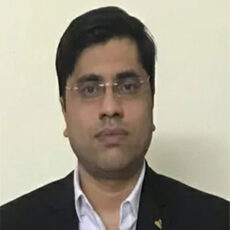
Cardiology
Cardiology is the branch of medicine that specializes in the study, diagnosis, and treatment of diseases and disorders of the heart and the circulatory system, which includes the blood vessels (arteries and veins). Cardiologists are medical doctors who specialize in cardiology and are experts in the evaluation, management, and prevention of heart-related conditions.
Here are some key aspects of cardiology:
Scope of Cardiology:
Cardiologists focus on a wide range of heart-related conditions, including:
- Coronary artery disease (CAD): Blockages in the blood vessels that supply blood to the heart muscle.
- Heart failure: A condition where the heart cannot pump blood effectively.
- Arrhythmias: Abnormal heart rhythms, including tachycardia (fast heartbeat) and bradycardia (slow
heartbeat). - Valvular heart disease: Problems with the heart valves, which control blood flow in and out of the
heart. - Congenital heart defects: Heart abnormalities present at birth.
- Hypertension (high blood pressure): A major risk factor for heart disease.
- Heart attacks (myocardial infarctions): Sudden blockage of blood flow to the heart muscle.
- Cardiomyopathy: Diseases of the heart muscle itself.
- Pericardial diseases: Conditions affecting the lining around the heart (pericardium).
Diagnosis:
Cardiologists use a variety of diagnostic tools and tests to assess heart health, including:
- Electrocardiography (ECG or EKG): Measures the electrical activity of the heart.
- Echocardiography: Uses ultrasound to create images of the heart’s structure and function.
- Cardiac stress tests: Evaluate the heart’s performance during exercise.
- Cardiac catheterization: Involves threading a catheter into the heart’s blood vessels to diagnose and
treat heart conditions. - Blood tests: Measure markers of heart health, such as cholesterol levels and cardiac enzymes.
- Imaging tests: CT scans, MRIs, and nuclear imaging can provide detailed views of the heart and blood
vessels.
Treatment Options:
Cardiologists develop treatment plans tailored to the specific needs of their patients. Treatment options may include:
- Medications: Prescribed to manage heart conditions, lower blood pressure, or control cholesterol
levels. - Lifestyle modifications: Recommendations for diet, exercise, smoking cessation, and stress management.
- Interventional procedures: Minimally invasive procedures like angioplasty and stent placement.
- Surgery: Cardiac surgeons may perform procedures like coronary artery bypass grafting (CABG) or heart
valve repair/replacement. - Implantable devices: Pacemakers, implantable cardioverter-defibrillators (ICDs), and cardiac
resynchronization therapy (CRT) devices can regulate heart rhythms. - Cardiac rehabilitation: Programs to help patients recover from heart-related procedures and improve
cardiovascular health.
Cardiology is a critical medical specialty as cardiovascular diseases are a leading cause of morbidity and mortality worldwide. The field continues to advance, with innovations in diagnostics, treatments, and preventive strategies aimed at improving the heart health of individuals and populations.
Meet Our Doctors





